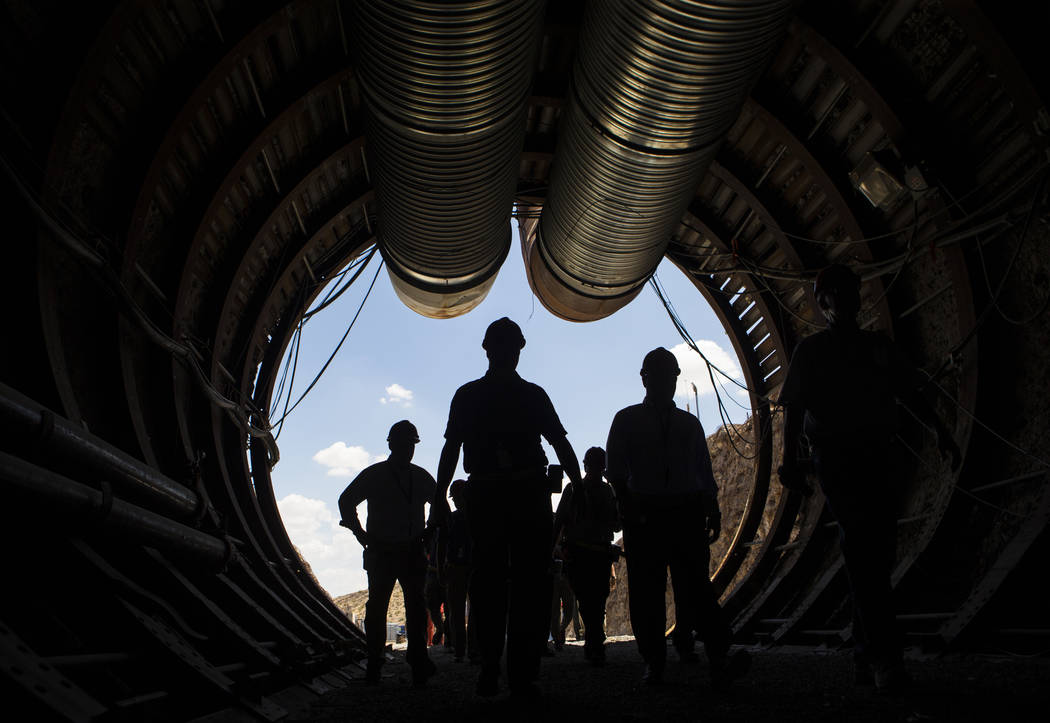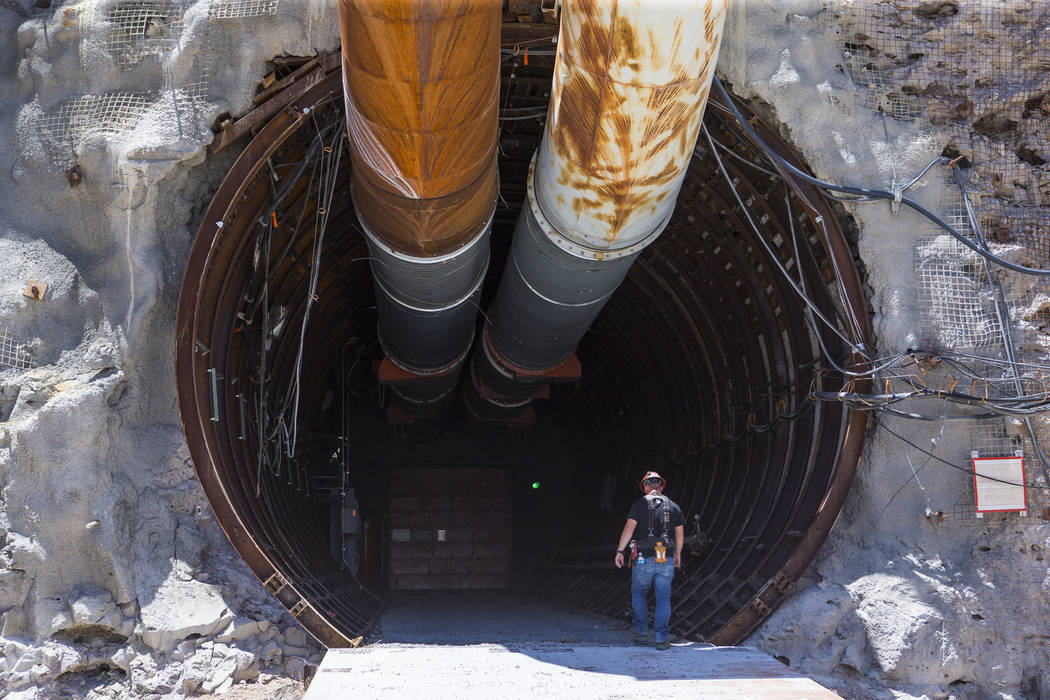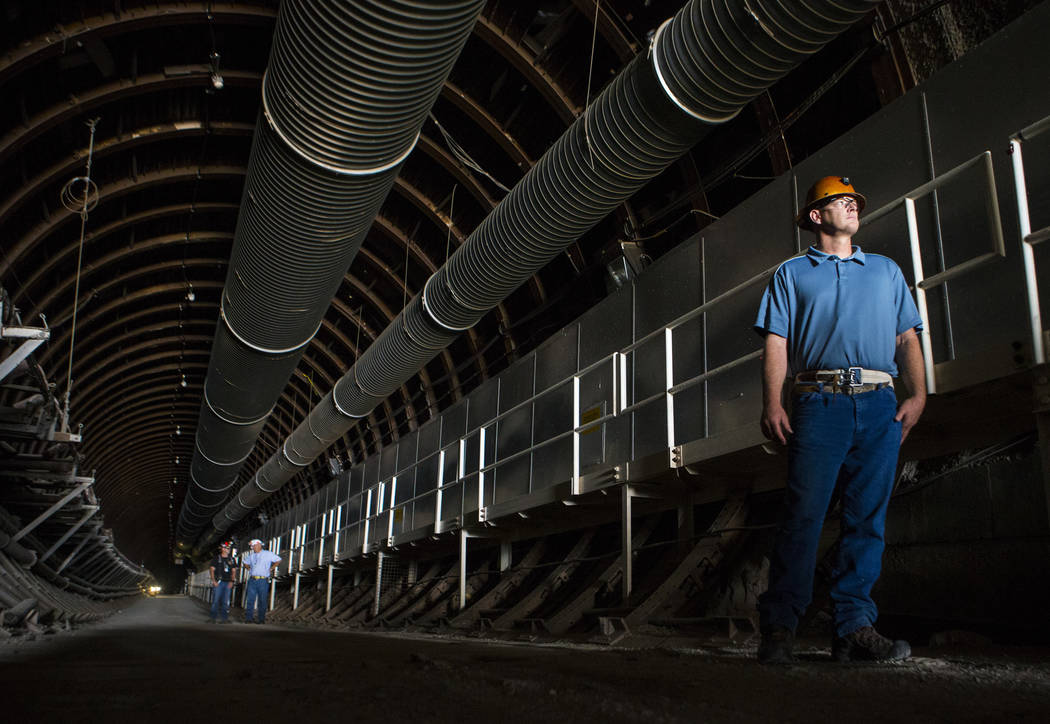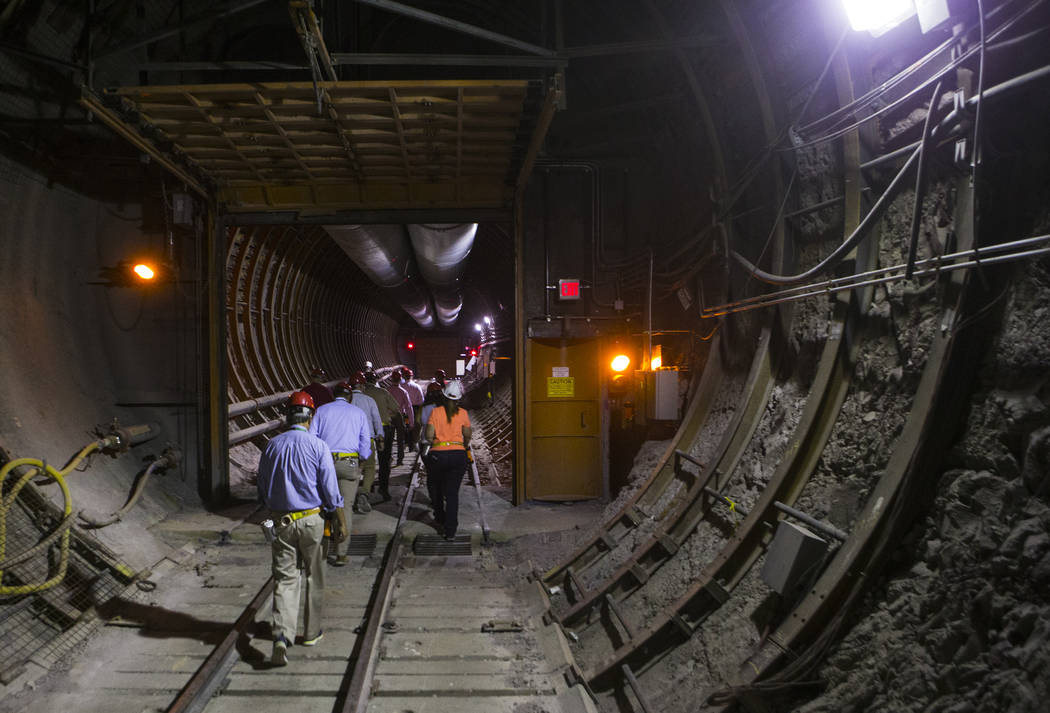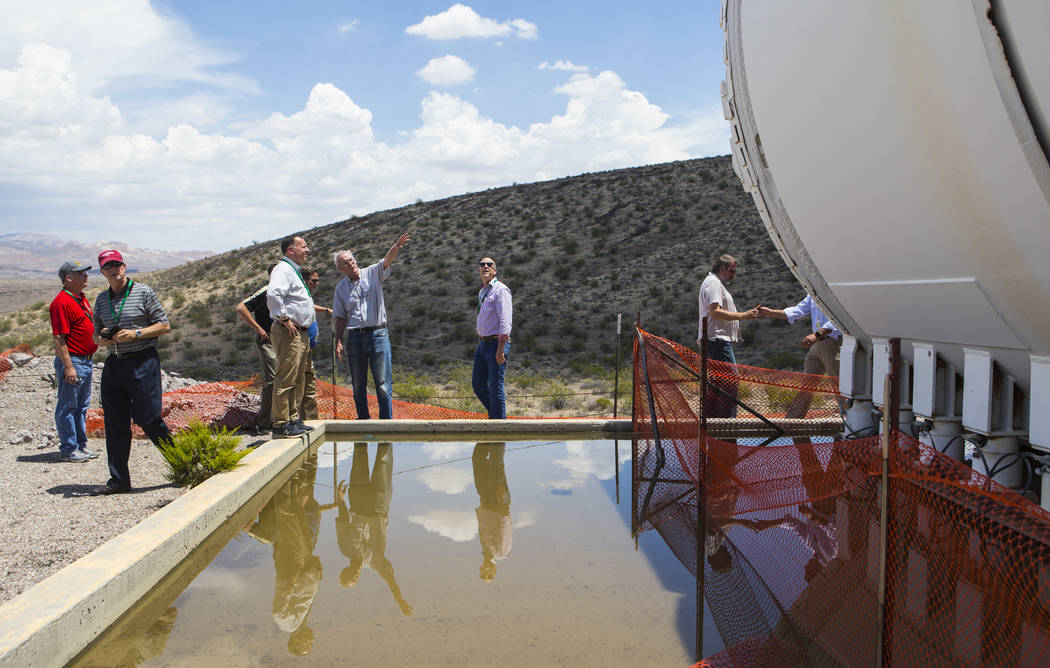Yucca Mountain revival efforts appear dead – for now
WASHINGTON — Efforts to restart licensing hearings and store nuclear waste at Yucca Mountain appear dead for the next year after a congressional panel eliminated a funding request from the defense bill July 23.
Trump administration and congressional attempts to restart the licensing hearings and open the nuclear waste repository will likely resume in the next Congress, after midterm elections in November that could reshape the House.
The House Armed Services Committee had authorized $30 million in the defense bill to store waste in Nevada, and the House had included $120 million in a separate spending bill to revive the licensing process for the Department of Energy’s application before the Nuclear Regulatory Commission.
Those items were both rejected by the Senate.
A House-Senate conference committee left the authorization language out of a compromise defense bill released Monday.
U.S. Sen. Dean Heller, R-Nevada, said he asked Senate Armed Services Committee Chairman John McCain, R-Arizona, to keep the $30 million authorization out of the defense bill.
“Once again, I was able to work to kill efforts in the U.S. House of Representatives to bring nuclear waste to Nevada,” Heller said in a prepared statement.
The House bill included the $30 million authorization.
Nye County
Nine rural Nevada counties, including Nye, support a licensing review by the NRC to determine if the geologic repository is safe for permanent storage of waste. Nye County sees a permanent repository as a potential economic boon with high-paying federal jobs and business opportunities.
A message seeking additional comment was sent to Nye County Commissioner Dan Schinhofen by the Pahrump Valley Times.
“While we are not surprised that the Senate has punted again on funding the law concerning spent fuel, I am personally disappointed,” Schinhofen said via email. “Political science still seems to be leading on an issue that should be relying on nuclear science.”
“I am hopeful that at some point our state leaders realize that they should follow the rule of law, listen to the local leaders who are closest to the situation, and that it is unacceptable they are not willing to hear the science and to test their supposed science against technical experts,” he also said.
Schinhofen, one of the most vocal proponents of Yucca Mountain in Nye County, has said he stands with eight other rural Nevada counties that support vetting the science of Yucca Mountain.
“We just want the law to be followed, and have that body that deals with nuclear issues to hear the science,” Schinhofen said last year.
Schinhofen lost his re-election bid in the District 5 race during the June primaries. His future replacement, Debra Strickland, said in a June interview with a reporter from the Pahrump Valley Times that “she wants to see more science on Yucca Mountain before she can support the project.”
“The science is 10 years old on Yucca Mountain, and I would like to see some more recent science,” she said in the phone interview with the Times.
Defense bill
Last month the House voted 351-66 to approve the defense spending bill, which included a raise for military personnel. The Senate passed its version of the $716 billion bill in June on an 85-10 vote.
Lawmakers in the House and Senate must now vote to approve the compromise bill to authorize Pentagon spending for fiscal 2019, which begins Oct. 1. Last month Senate appropriators deleted a $120 million budget request submitted by the Trump administration and approved by the House to restart licensing at Yucca Mountain. That funding was included in the spending bill for the DOE in fiscal 2019.
Heller and U.S. Sen. Catherine Cortez Masto, D-Nevada, urged Senate appropriators to delete the $120 million.
The lack of funding for Yucca Mountain leaves the project at an impasse for the year.
The House and Senate have historically been at loggerheads over the approach to nuclear waste storage.
Senators are seeking more emphasis on interim storage sites until permanent repositories are built. Yucca Mountain, though, remains integral to plans in both chambers.
Congress designated Yucca Mountain in 1987 as the nation’s permanent repository for nuclear waste from power plants and some military-generated waste.
But despite $15 billion spent to study the location, a facility has yet to be built on the Nye County site, mostly due to political opposition in Nevada.
Nuclear waste
Meanwhile, waste from nuclear power plants and the Navy is being stockpiled around the country. An annual DOE financial report released last month said taxpayer liability for litigation over the federal government’s failure to permanently store nuclear waste has grown to $34.1 billion, a $3.3 billion increase over last year.
“Taxpayers in all 50 states are now liable for $34.1 billion because the federal government has not even begun to consolidate the spent nuclear fuel stranded around our nation,” Rep. John Shimkus, R-Ill., chairman of the House Energy and Commerce subcommittee on environment and the economy, said when the report was published.
The House passed legislation this year to streamline the application licensing process and increase the nuclear waste storage capacity of Yucca Mountain from 70,000 to 110,000 metric tons.
Shimkus had urged the Senate to “quickly take up and pass that bipartisan bill to address this national priority.” However, the Senate has not taken up the Shimkus legislation or introduced its own version of a bill on long-term storage of nuclear materials.
The effort to revive the licensing hearings will now be put off until 2019 and the next Congress.
The Pahrump Valley Times staff contributed to this story.


